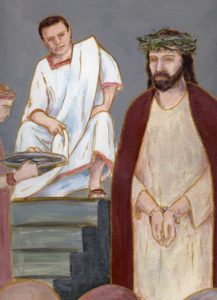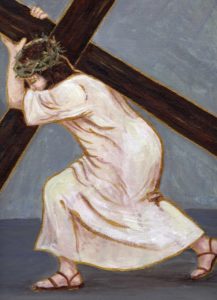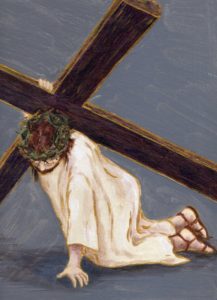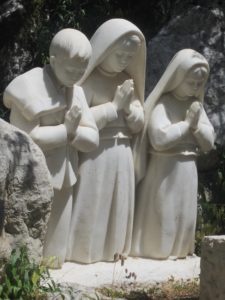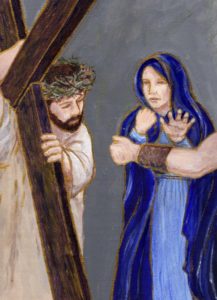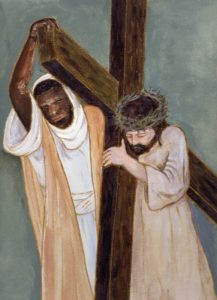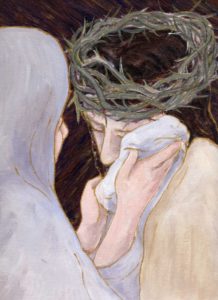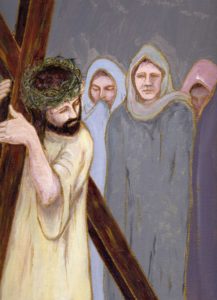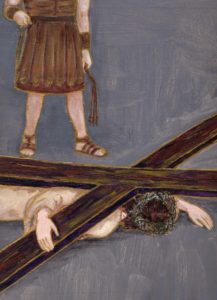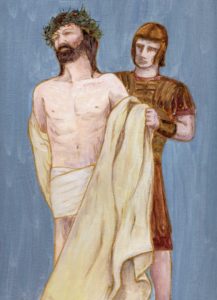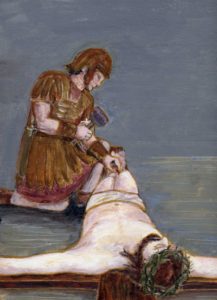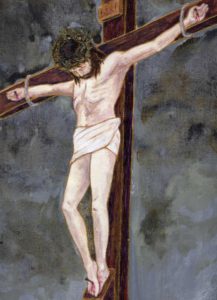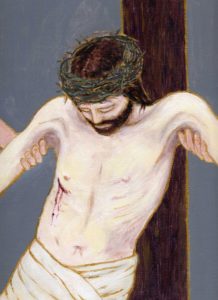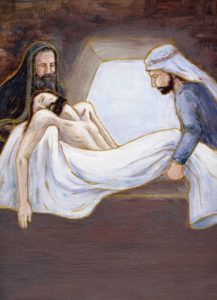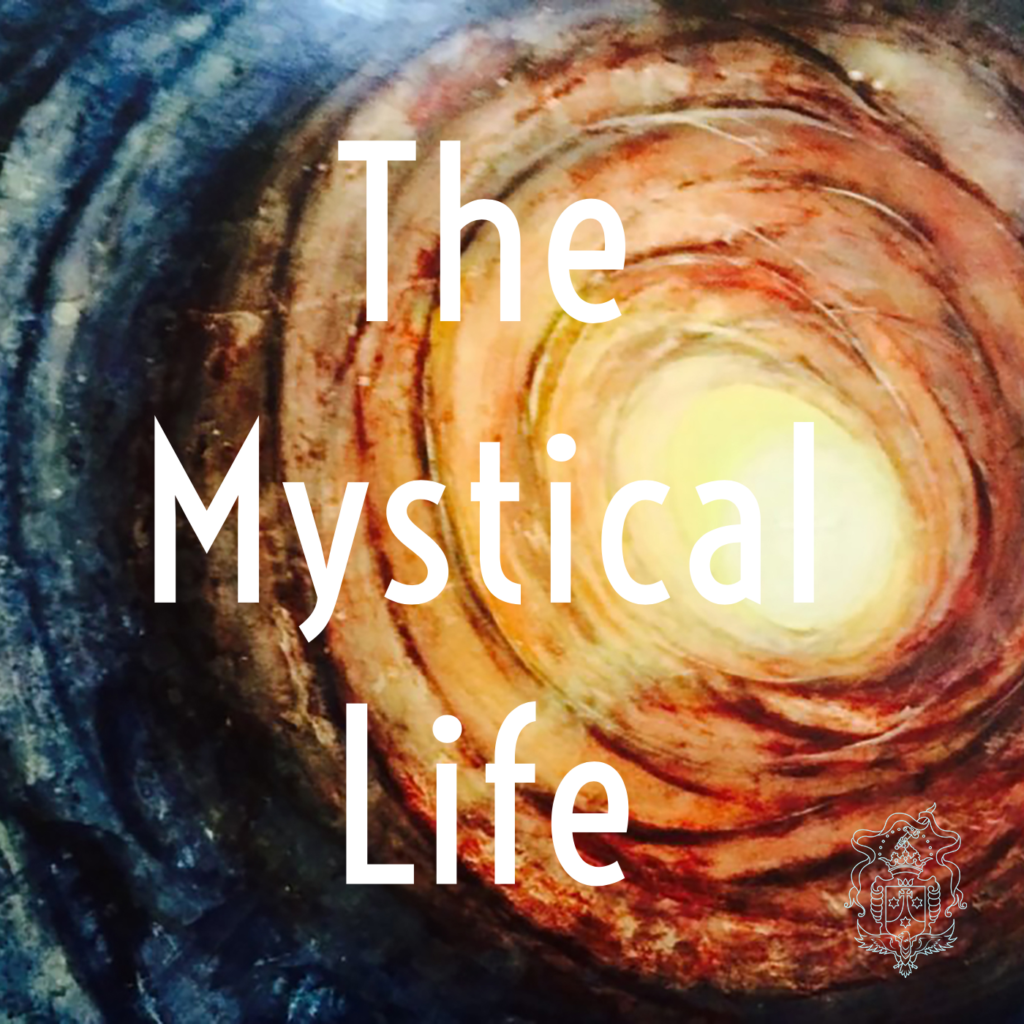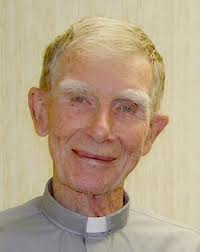Father Michael Buckley, OCD
Burial Service Mt. St. Joseph 12 29-2016
Note: Please also read the Provincial Obsequial Letter from Father Stephen Watson
By Father James Geoghegan, OCD: In this holy season we recall the circumstances of the birth of Jesus Christ and we are painfully aware of the tragedy of civil war in the Middle East and the sufferings of refugees. It is appropriate to think of these as we bid farewell to Father Michael. In November on the occasion of his 96th birthday he wrote to me, “I think at this time always of the rough ride my mom made, on the run, to save her little boy from the Tans [Irish Royal Special Reserve] in Tournafulla. And my birth within an hour or two as she just reached the sanctuary of her brother’s home in Castle Island.” It was during the Irish War of Independence in 1920. Fr. Michael’s father was hiding from the British Army and his mother got a horse and cart and set out for her brother’s home to avoid harassment. A couple of hours after her arrival she gave birth to Michael.
Three years later in the tragic civil war in Ireland there was disruption again. Fr. Michael’s father, Patrick Buckley was taken prisoner by the government forces and murdered, leaving behind a very young family of which Michael was the baby. In a new book, the Irish historian Tim Pat Coogan tells of this tragedy and how the government “in a mean spirited and ungenerous approach” then refused to give any compensation or help to the widow and children of Patrick Buckley. Coogan’s father, a high ranking officer in the government police force said of the family “they have no visible means of obtaining a livelihood.”
That was the beginning of Fr. Michael’s life. When he was 3 his mother sent him to school with the other children of the family. I remember Fr. Michael’s mother when she visited the seminary when Fr. Michael was our teacher. She was described by one of the priest’s as like Our Lady of Sorrows. Kitty Scholl of Napa, who grew up in Castle Island, said that her mother described Mrs Buckley as “so kind and gentle that you could go to confession to her.” I think we have enough evidence to know how difficult was Fr. Michael’s childhood. Recently, he told me that he had no bitterness in his heart and that time had healed the divisions of the country. He was a brilliant student and received an excellent education. He studied in the National University of Ireland and in the Carmelite Seminary in Dublin
After ordination, he was sent to Rome where at the Angelicum and the Biblicum, he received degrees in Theology and Sacred Scripture. He spoke fluently English, Irish, Latin, Italian, Spanish and could read Hebrew, Aramaic, Greek and French. Always interested in sports, he played soccer for the university team. One of the other players was a young Polish seminarian called Carol Wojtyla later known as Pope John Paul II.
After Studies in Rome, he returned to Dublin as professor of Scripture. Some of us here had the privilege of studying under him He was so clear and a marvelous teacher. Over 60 years later, I attended one of the classes in Oakville. At 95 he was as clear as ever. He loved the Scriptures, they were the living presence of Christ. He loved to teach, he loved to share.
He went as a missionary to India where he taught in the major seminary at Alwaye. While there he was involved in ecumenical work. Eventually he came to California where he was elected Major superior. During his time, we Carmelites founded a house in Washington State. Because of his success here, he was then elected Provincial Superior of the Anglo Irish Province, which at that time embraced Ireland, England, United States, Australia, and the Philippines. At the end of that service he returned to California. When Fr. David Costello went to Africa Fr. Michael took his place as superior of our House of Prayer in Oakville.
Stationed here in San Jose he was in charge of the Carmelite Secular Order for eleven years. Wherever he was stationed he made a big impact because of his intelligence and his quiet holiness. He cooperated with the Central Office in Rome on various projects and of course was always a brilliant contributor to issues affecting us here in the Western Province. He was a free man, unafraid of anyone or any idea. In fact, he was the burr under the saddle of our Provincials always reminding them to fulfill the tasks assigned by the Provincial Chapters.
In his later years he led a quieter life, always interested in Ireland and its football teams, and always a perfect example of Christian kindness. A man of prayer and study, he was a wonderful confessor, preacher, writer and lecturer, and ever a contributing member of his religious community. Toward the end he suffered partial paralysis of his face and blind in one eye. He wrote to me, “Well praise God for his testing: because a good share of that now and it’s hard to smile with a paralyzed face. But a share of smiling goes on inside, I believe.” He kept going, still teaching class and sharing in the work of the monastery.
A man of his word and of The Word he loved the Bible and literature in general. He loved poetry, especially Newman’s
lead kindly light amid the encircling gloom
lead thou me on!
The night is dark, and I am far from home
Keep thou my feet; I do not ask to see
the distant scene – one step enough for me.
Tennyson’s
Twilight and evening bell,
and after that the dark!
And may there be no sadness of farewell,
When I embark
For tho’ from out our bourne of Time and Place
The flood may bear me far,
I hope to see my Pilot face to face
When I have crost the bar.
And Robert Louis Stephens epitaph.
This be the verse you grave for me
Here he lies where he longed to be :
Home is the sailor , home from the sea,
and the hunter home from the hill
I think that his favorite passage from literature was a section from Uncle Tom’s Cabin that describes the death of Eva the young girl and friend of Tom. 40 years ago he wrote it out for me.” In that book (Bible) which Eva and her old friend (Tom)had read so much together, she had seen and taken to her young heart the image of one who loved the little child: and as she gazed and mused, He had ceased to be an image and a picture of the distant past, and come to be a living all- surrounding reality. His love enfolded her childish heart with more than mortal tenderness; and it was to Him, she said,she was now going, and to His home”
That too could be a description of Fr. Michael’s death. He died peacefully like a little child and went home to the one whom he had studied and loved for so long.
Michael is now at home joining his beloved mother and meeting the father he did not remember and could say in the recent words of an Irish poet Paul Durcan –
“and now I put the key for the first time into the door of my father’s house.”
